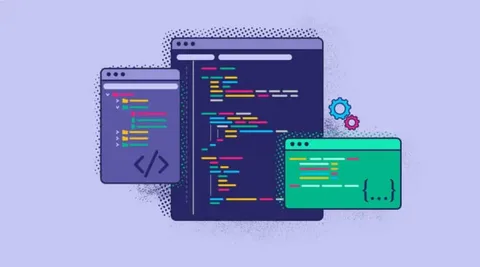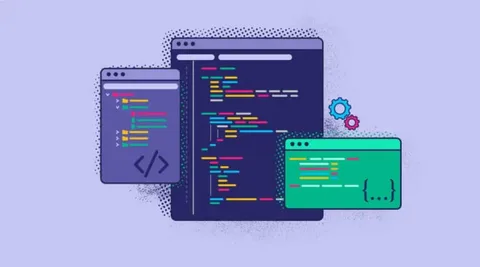Scripting Tools: Enhancing Automation and Efficiency in Software Development
In the world of software development and system administration, scripting has become an indispensable skill. Scripting allows developers, IT professionals, and even data scientists to automate repetitive tasks, simplify complex processes, and ensure efficiency across various environments. By writing scripts—simple sequences of commands—users can quickly interact with systems, manipulate data, or create sophisticated workflows without the need for manual intervention.
A scripting tool is any software that aids in writing, testing, and executing scripts. These tools are designed to simplify the process of creating and running scripts, often providing features like debugging, syntax highlighting, version control integration, and code completion.
In this article, we will explore the importance of scripting, the most common scripting languages, the types of scripting tools, and the top tools available in the market today.
What Are Scripting Tools?
Scripting tools are software programs that help users create, test, and execute scripts. These scripts can automate tasks, handle system operations, or control software applications. A scripting tool typically includes a text editor or an integrated development environment (IDE) that provides syntax highlighting, error detection, and debugging features, along with tools for managing the execution of scripts.
Key Features of Scripting Tools
- Syntax Highlighting: This feature makes code more readable by coloring different elements of the code (keywords, variables, functions, etc.) to easily distinguish between them.
- Debugging Tools: Most scripting tools provide debugging support, helping developers identify and resolve issues within scripts by providing breakpoints, step-through execution, and variable inspection.
- Autocompletion and IntelliSense: These tools predict the next portion of the code as the developer types, providing suggestions based on the context, reducing errors and speeding up development.
- Integrated Execution: Many scripting tools allow you to run scripts directly within the editor, enabling fast iteration and testing.
- Version Control Integration: Scripting tools often integrate with version control systems like Git, allowing developers to track changes and collaborate on scripts efficiently.
- Multi-language Support: Some tools support multiple scripting languages (e.g., Python, Bash, PowerShell) in one environment, making it easier for developers to work across different platforms.
- Cross-Platform Compatibility: Many scripting tools are available for multiple operating systems, ensuring developers can work in their preferred environment (Windows, Linux, macOS).
Importance of Scripting
Scripting plays a crucial role in modern software development, system administration, data analysis, and more. Here are some of the reasons why scripting is so important:
1. Automation of Repetitive Tasks
Scripting allows users to automate manual, repetitive tasks like file management, backups, data extraction, and system maintenance. This saves time and reduces the likelihood of human error. For instance, system administrators can write scripts to automate the installation of software or configure systems on multiple machines.
2. Improved Productivity
By automating tasks that would otherwise take significant time to complete manually, scripting significantly enhances productivity. Developers can write scripts to handle tedious tasks, like compiling code or running tests, and focus on more valuable aspects of their work.

3. Faster Development and Testing
Scripting helps speed up the development and testing cycles. Automated testing scripts allow for continuous integration (CI) and continuous deployment (CD), enabling rapid feedback on changes in the codebase and helping to ensure higher code quality.
4. Customization and Flexibility
Scripting offers flexibility that pre-built software solutions often cannot match. With scripts, developers can create highly customized solutions tailored to their specific needs, whether it’s configuring a cloud server or parsing a log file.
5. Cost Efficiency
Since scripting tools often run on standard hardware and software environments (without the need for complex or expensive tools), they provide a cost-effective way to accomplish a range of tasks. Additionally, they are typically free or low-cost, making them accessible to small teams or individual developers.
Common Types of Scripting
Scripting tools cater to various types of scripting languages, each serving a distinct purpose. Here are some of the most common types of scripts:
1. Shell Scripting
Shell scripting is a way to automate tasks in Unix-like operating systems (such as Linux and macOS) by writing scripts for the shell, such as Bash or Zsh. These scripts can automate system maintenance, file manipulation, software installation, and more. Shell scripts are usually used for low-level system management and operations.
- Popular Languages: Bash, Zsh, Fish
- Typical Use Cases: File management, system administration, process control, network tasks.
2. Python Scripting
Python is one of the most popular scripting languages, known for its simplicity and versatility. Python scripts can be used for automation, data manipulation, web scraping, and even machine learning tasks. It is commonly used in web development, system administration, and data science.
- Popular Tools: PyCharm, Visual Studio Code (VS Code), Jupyter Notebooks (for data science).
- Typical Use Cases: Web scraping, automation, data analysis, API integrations.
3. PowerShell Scripting
PowerShell is a task automation framework developed by Microsoft for system administration tasks in Windows environments. It combines a powerful scripting language with an interactive shell, offering great functionality for managing Windows systems.
- Popular Tools: PowerShell ISE (Integrated Scripting Environment), Visual Studio Code (with PowerShell extension).
- Typical Use Cases: Automation of administrative tasks, server management, batch processing.
4. JavaScript and Node.js Scripting
JavaScript is traditionally used for web development, but with Node.js, it can also be used for server-side scripting. JavaScript scripts run in the browser and interact with HTML and CSS, making it essential for web development.
- Popular Tools: Visual Studio Code, Sublime Text, WebStorm.
- Typical Use Cases: Web applications, web APIs, server-side scripting with Node.js, front-end interactions.
5. Ruby Scripting
Ruby is a high-level, general-purpose scripting language that is popular for web development and server-side scripting. Ruby’s syntax is simple and readable, making it a great choice for scripting tasks.
- Popular Tools: RubyMine, Visual Studio Code.
- Typical Use Cases: Web development (Ruby on Rails), system automation.
6. SQL Scripting
SQL (Structured Query Language) scripts are used to interact with databases. These scripts are essential for data retrieval, data manipulation, and database management. SQL is not typically used for general-purpose scripting, but rather as a specialized language for working with relational databases.
- Popular Tools: MySQL Workbench, SQL Server Management Studio (SSMS), DBeaver.
- Typical Use Cases: Data extraction, database querying, report generation.
Popular Scripting Tools
There are numerous scripting tools available that help users write, debug, and execute scripts across different languages. Below are some of the top scripting tools:
1. Visual Studio Code (VS Code)
Visual Studio Code is one of the most popular free code editors, supporting a wide range of programming and scripting languages. With support for extensions and integrations, it’s a versatile tool for developers working with Python, JavaScript, Bash, PowerShell, and more.
- Key Features:
- Syntax highlighting for many languages.
- Integrated terminal for running scripts.
- Extensions for language support, debuggers, linters, and version control.
- Git integration.
- Best For: Developers working with multiple scripting languages who need a lightweight but powerful editor.
2. PyCharm
PyCharm is a dedicated IDE for Python development, but it also offers excellent support for Python scripting. It includes features like intelligent code completion, debugging, testing tools, and a built-in terminal for running scripts.
- Key Features:
- Python-specific syntax highlighting and code suggestions.
- Integrated testing and debugging tools.
- Built-in virtual environments for managing dependencies.
- Integrated Git support.
- Best For: Python developers who need a specialized environment with powerful features.
3. Sublime Text
Sublime Text is a fast, lightweight text editor that supports various programming and scripting languages. It is ideal for quick script edits or larger projects, offering features like multi-caret editing, customizability, and a distraction-free interface.
- Key Features:
- Syntax highlighting for many languages.
- Multi-caret editing for editing multiple lines simultaneously.
- Extensible with plugins and packages.
- Lightweight and fast.
- Best For: Developers looking for a fast, minimal editor that supports various languages.
4. PowerShell ISE (Integrated Scripting Environment)
PowerShell ISE is a powerful IDE for writing and running PowerShell scripts. It provides syntax highlighting, debugging tools, and a built-in console for interacting with your scripts.
- Key Features:
- Syntax highlighting and code completion.
- Integrated console for script execution.
- Debugging features like breakpoints and step-through.
- Best For: System administrators and developers working with PowerShell on Windows.
5. Notepad++
Notepad++ is a free text editor that supports many programming languages, including shell scripting, Python, and JavaScript. While not as feature-rich as some IDEs, it’s lightweight and perfect for quick script writing.
- Key Features:
- Syntax highlighting for multiple languages.
- Macro recording and playback.
- Lightweight and fast.
- Best For: Quick script edits, especially when working on smaller tasks or non-complex scripting.
6. Jupyter Notebooks
Jupyter Notebooks is a web-based tool primarily used for data analysis, machine learning, and scientific computing. It supports Python and R scripts and allows users to mix executable code with visualizations, charts, and narrative text.
- Key Features:
- Interactive notebooks for Python and R.
- In-line code execution and data visualization.
- Support for markdown, equations, and text annotations.
- Best For: Data scientists and analysts working with data-driven scripts and interactive code.
Conclusion
Scripting tools are an essential part of the modern developer’s toolkit, enabling the automation of tasks, optimization of workflows, and streamlining of repetitive processes. Whether you’re managing systems, developing web applications, or analyzing data, there’s a scripting tool tailored to your needs.
From Visual Studio Code for multi-language support, PyCharm for Python developers, to PowerShell ISE for system administrators, there’s no shortage of powerful tools to help you write, debug, and run your scripts efficiently. Selecting the right scripting tool depends on your specific needs, programming language, and environment, but one thing is certain: scripting tools are indispensable for improving productivity and enhancing automation across development and IT operations.

